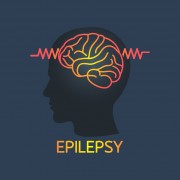The essentials on epilepsy and seizures
Though seizures are the key sign of epilepsy, they can be associated with other conditions as well

International Epilepsy Day (IED) is celebrated every year on the second Monday of February to promote awareness of epilepsy around the world – a joint initiative organised by the International Bureau for Epilepsy (IBE) and the International League Against Epilepsy (ILAE).
Epilepsy is one of the most common neurological diseases with an estimated 65 million people living with the disease globally, according to IED. It is a chronic disorder signaled by unprovoked, recurrent seizures and may be categorised as epilepsy when a person has had two or more seizures.
Seizure, as a symptom for epilepsy, is when a sudden shock of electrical activity in the brain occurs, causing disruption in one’s behavior, movements or feelings for a short period. Most seizures cease on their own but can lead to self-injury.
However, it’s worth noting that not everyone who has had a seizure has epilepsy.
Epilepsy is diagnosed when at least two unprovoked seizures occur, one of the causes being genetics. In contrast, when a person experiences a provoked seizure - caused by disruption to the brain function, such as a stroke or trauma to the head – the seizure may be treated as an isolated case with little to no risk of a reoccurrence.
Development of epilepsy and seizures can occur in any person regardless of age, gender and ethnic background. The Epilepsy Foundation reports that about 48 of every 100,000 people will develop epilepsy - particularly common in young children and older people.
How do I identify a seizure?
While there are many types of seizures, the ILAE has narrowed them down to three major types:
Focal seizures occur when the electrical activity starts in just one region of the brain and are categorised as motor (involving movements) and non-motor (involving feelings or sensations).
Motor symptoms include:
- Repeatedly picking up objects or pulling at clothes
- Making a loud cry or scream
- Repetitive jerking movements that affect one or both sides of the body
Non-motor symptoms include:
- Sudden intense feeling of fear or joy
- Stiffness or twitching in a part of the body
- Visual hallucinations such as “seeing” colours or flashing lights
Generalized onset seizures affect all areas of the brain and cause the body to move in uncontrollable ways – a series of reaction may happen:
- Lose consciousness
- Start biting one's tongue or inside of one's cheek
- Arms and legs jerk drastically
- Have difficulty breathing and become pale
- Lose control of bladder
- At the end, feel tired or confused without recollection of the seizure
Unknown onset seizures represent undiagnosed seizures, that have not been classified as focal or generalized onset. This can be due to insufficient information such as when the seizure occurs without a witness or when the person is asleep.
When should I visit a doctor?
According to the Epilepsy Foundation, there are some key symptoms that may be considered a warning to a seizure or may be part of a seizure. If any of the following symptoms persist, keep track of them and consult a doctor:
- Odd feelings, often indescribable
- Unusual smells, tastes, or feelings
- Unusual experiences - "out-of-body" sensations; feeling detached; body looks or feels different; situations or people look unexpectedly familiar or strange
- Feeling spacey, fuzzy, or confused
- Periods of forgetfulness or memory lapses
- Jerking movements of an arm, leg, or body
- Tingling, numbness, or feelings of electricity in part of the body
- Unexplained confusion, sleepiness, weakness
- Losing control of urine or stool unexpectedly
While there is currently no cure for epilepsy, medication is often effective to keep seizures under control. A range of epilepsy surgeries are also available, for cases where patients do not respond to medication or therapies.
How to be a part of the IED global movement
IED hopes to use social media as the voice to promote messages on epilepsy awareness. Share content and your personal story on epilepsy using the hashtag #epilepsyday - among other ways.
Related Articles
Spinal surgeries without cutting open the patient
Minimally invasive procedures can result in more comfort and less downtime
Read moreNew neck scan could predict dementia risk
Five-minute test measures the quality of blood flow to the brain
Read moreExcessive alcohol intake could lead to dementia
Heavy drinkers are at increased risk of developing early-onset dementia, a study suggests
Read moreLatest Articles
Medical Care
Achieving Swift Recovery: Enhanced Recovery (ERAS) Direct Anterior Approach Total Hip Replacement
Consider total hip replacement with Alps Orthopaedic Centre's ERAS Direct Anterior Approach for faster recovery and reduced hospital stays. Learn about Dr. Jerry Chen's expertise in Singapore.
Read moreMedical Care
Enhanced Recovery (ERAS) Total Knee Replacement
Discover how Alps Orthopaedic Centre's Enhanced Recovery After Surgery (ERAS) approach transforms total knee replacement into a day surgery, offering faster recovery, less pain, and reduced hospital bills. Learn about Dr. Jerry Chen's expertise and schedule your appointment in Singapore.
Read moreMedical Care
Clinical Exercise Physiologist (CEP): The Emerging of Exercise is Medicine
How Exercising can be a Medicine
Read more